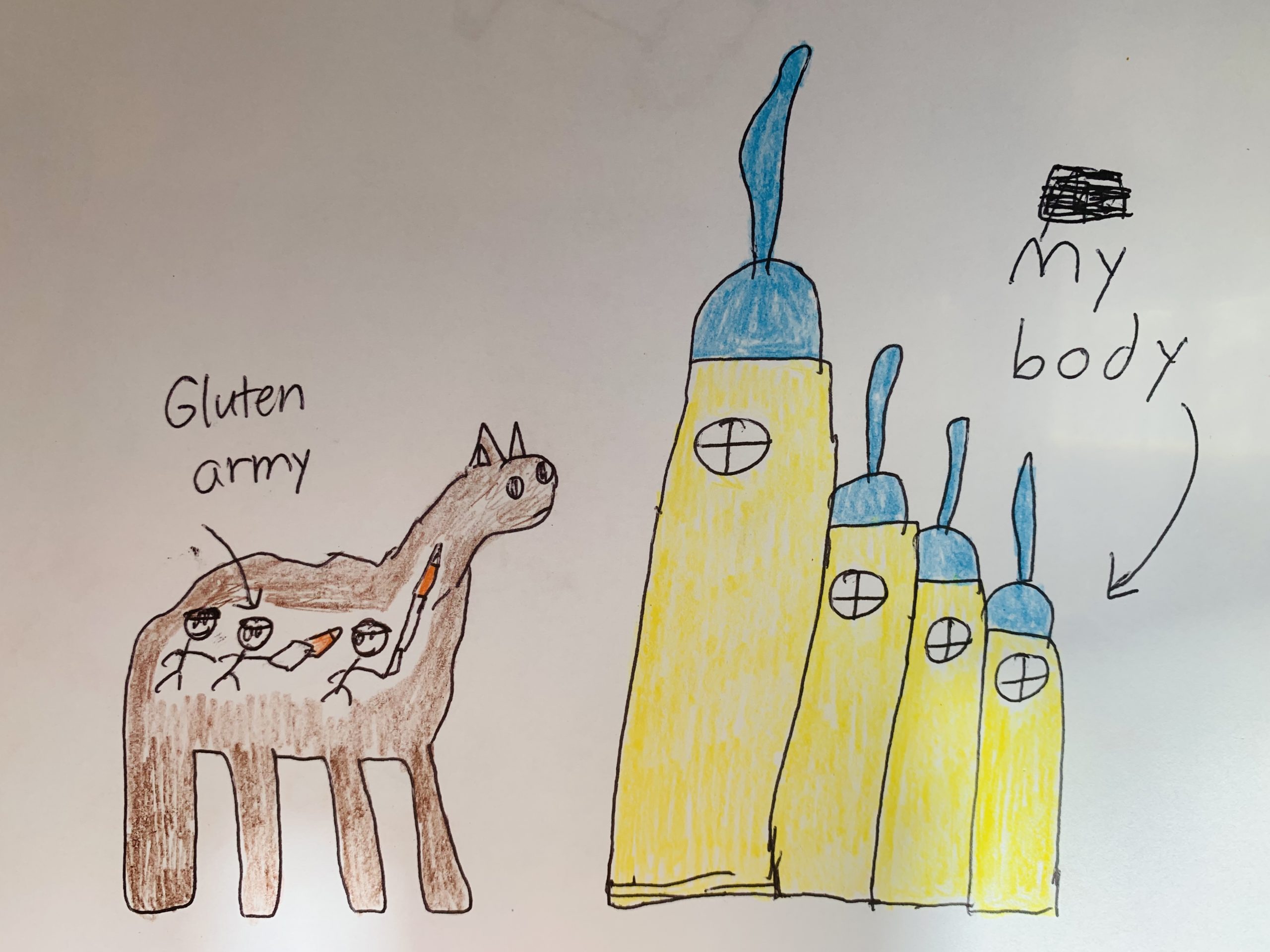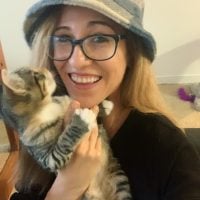In early 2020, COVID-19 became the world’s enemy. In September 2020, gluten became mine.
Californians woke up to the surprise of an orange-tinted sky on September 7, 2020. That morning, I awoke with a ringing in my ears as usual, and a fogginess in my head.
Usually, the sounds of nature and wildlife filled the air outside my window, but that day, eerie silence replaced the singing of birds and the scuttling footsteps of squirrels against my rooftop. All I could hear was the sound of BART (Bay Area Rapid Transit) in the distance, whooshing past every 20 minutes, like ghosts on high-power electric rollerblades.
In the absence of external stimuli to distract it, my attention turned inward—to the intense lethargy I felt, despite having slept eight hours the previous night; to the fogginess in my brain, like someone had poured syrup into it; to the pins and needles shooting through my left leg. I tuned in to the whooshing in my right ear, which had started in March and never went away (ear specialists told me it was tinnitus and that there was no cure, so I adapted and learned to live with it). The quiet in that moment made the ringing sound louder.
Looking through the window at the surreal daytime darkness, I thought about the American tendency to ignore and minimize symptoms until we can’t anymore. The planet that day, with smoke choking its air for weeks before culminating in an apocalyptic-appearing sky, seemed a clear example of this. What started as small hints dropped years ago had escalated into loud, undeniable calls for help. Why hadn’t we paid attention earlier? Where might we be right now if we had?
Powering on my laptop, I researched autoimmune disorders, then reached out to my doctor asking him to test for the ones that matched my symptoms. All of the tests came back normal—all except for the one for Celiac disease.
~
Before my diagnosis, I didn’t know much about this autoimmune disease—wherein the ingestion of gluten damages the villi of the small intestines, making it difficult to absorb nutrients (the only cure for which is to adhere to a strict lifelong gluten-free diet).
Like many people, I assumed that you could only have it if you got extremely sick after eating gluten. The diagnosis came as a surprise to me given that all my life, I had consumed gluten-containing foods without having suffered any obvious adverse consequences directly after.
As I would learn though, of the 1 in 100 people who have Celiac, some are born with it, but others develop the disease later in life after an environmental factor triggers the gene.
As I would also learn, stomach upset and nausea are only a few of Celiac’s 300-plus symptoms (some of which include brain fog, skin problems, and neurological, circulatory, and mental health issues). Some people with the illness don’t experience digestive symptoms or any symptoms at all until other parts of the body begin to suffer consequences due to impaired nutrient absorption.
If not treated early enough, Celiac continues to inflame one’s body and can gradually demolish the digestive system. Undiagnosed patients are also at greater risk for health complications from miscarriage and infertility to several cancers to Parkinson’s disease.
~
The diagnosis propelled a major shift in habits and behaviors, almost immediately. Like many Celiacs do, I bought my own kitchen supplies and kept them on a separate shelf to minimize the risk of accidental gluten ingestion (in the community, we refer to it as “being glutened”). I replaced most of my personal care belongings. In addition to being in foods you’d never expect, gluten can also hide in products like shampoos, Chapstick, sunscreen, and make-up.
My eating out habits were forced to change as well. Dining in restaurants always comes with risk for Celiacs, because even items listed as “gluten-free” on the menu may have been cross-contaminated if they were cooked on the same ovens and fryers as gluten-containing foods.
The whole experience has taught me the importance of perseverance and self-advocacy when it comes to personal health.
Through it, I want to encourage other people to take charge of their own. Listen to your body and if anything feels off or out of the norm for you, take note. Advocate for yourself and push your doctor for tests. Adequate care and responsiveness when it comes to your health are rights, not privileges—so don’t ever feel like a burden or a nuisance for demanding them.
As far as diagnosing autoimmune disorders and other hidden chronic illnesses, the road to clear-cut answers often isn’t easy or straightforward. Many women report being dismissed as hypochondriacs when they first tell doctors about their symptoms. Patients say it takes an average of five doctors and 3.5 years to finally receive a diagnosis.
Denial and minimization of symptoms are understandable impulses. Before my diagnosis, the idea of making big changes to my life felt daunting, possibly preventing me from being more insistent and proactive even earlier on than I ultimately decided to be. Confronting difficult truths is never easy.
The sooner we identify the source of our discomfort though, the sooner we can begin healing it. As James Baldwin said, “Not everything that is faced can be changed. But nothing can be changed until it is faced.”
I’m relieved to have finally found one of the main sources of mine. Living a gluten-free life isn’t convenient—it will require meticulous reading of food labels, asking highly specific but necessary questions at restaurants, far less spontaneity when it comes to social eating, and giving up my beloved IPAs—but it’s doable. And I’m grateful now to have a path forward and a chance at healing.


 Share on bsky
Share on bsky





Read 5 comments and reply